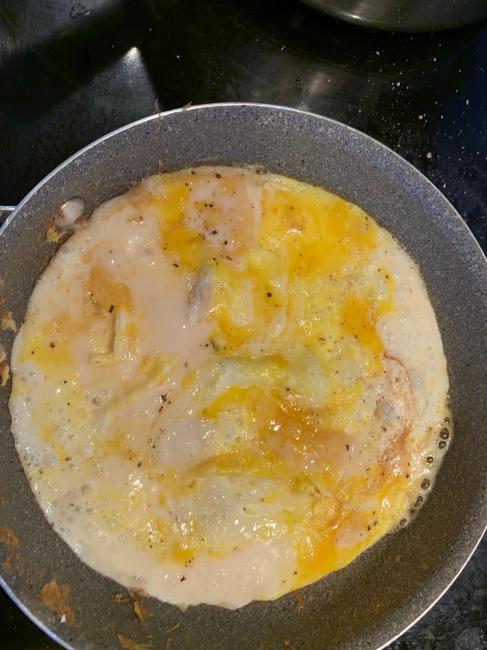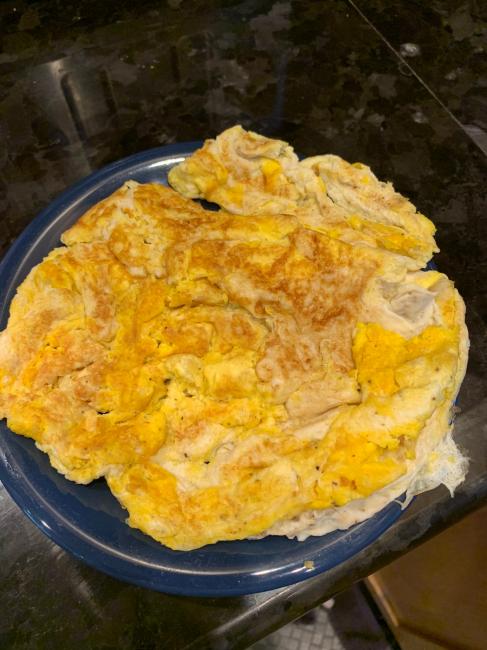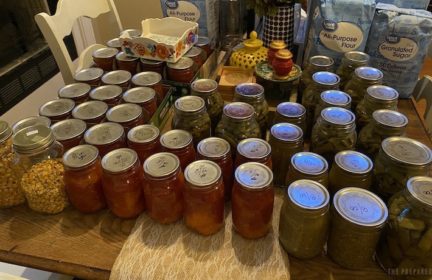Year old eggs stored in whole in shell with water and pickling lime – A GREAT easy way to store eggs!

-
Comments (6)
-
Gideon ParkerStaff - June 23, 2022
Do they taste any different than ones you might buy from the store that are days old? Does the pickling soak into the shell at all?
-
liebrecht - June 24, 2022
Eggs in the store can be 60 days old. So not as ” fresh” as many people think. And while technique may differ, waterglassing eggs for storage is an OLD OLD method.
liebrecht
-
Forager - June 24, 2022
My family used to do this, and I don’t recall noticing any difference in flavor, but the texture did change a lot. You definitely can’t whip the whites into meringue (which I’m sure will be high priority in the apocalypse, lol) and because they are runny and spread out more, they don’t make that perfect fried egg either. They were fine for scrambled eggs, french toast, or most baked goods. We never stored ours a whole year. Probably six months at most, just to get through the dark season when the chickens weren’t laying well.
-
-
Greg P - June 24, 2022
Very cool post – made me look up pickling lime & found a great article on storing eggs this way. I’ll definitely be trying this out. Thanks for the post!
-
Sharon - June 24, 2022
They tasted pretty good :)). The yolks all broke when opened, but the taste and texture was fine. The shells were REALLY hard and required twice the normal time to cook to hard boiled status.
The eggs I used were from my layers, so I know that these were very fresh. If it’s not too hot, I can keep my fresh eggs on the counter for months. I believe store eggs can be pretty old, plus they destroy the protective cover when they are washed. Some of the research on lime pickling that I came across nixed store eggs for this technique. If you don’t have your own chicks, you might be able to find local fresh eggs to do this with.
Now that we have a Freeze Dehydrator, I will freeze dry surplus and storage eggs, but for someone who is not able or ready to invest in an FD, this method is AOK by me.
I have another two batches that I will check at the two year point and report back. -
Pops - June 25, 2022
Here is THE best test I’ve ever seen. It’s from Mother Earth News back in the day, here is another report from even further back
In my experience the best tips are don’t wash and keep as cool as possible.
Rub any offending spots lightly with a dry cloth. Best probably to collect them often and wash and use any that get dirty right away. The reason, so I’ve read, is the natural coating diligently applied by the hen to seal out oxygen washes off easily.
Waterglass (sodium silicate) works similarly. Mixed with water it forms a gel as the water evaporates leaving a barrier to oxygen. Basically it is silica, that’s where the “glass” part comes from, and an alkali. Probably the alkalinity also prevents bacteria to an extent, that would likely be the reason lime works, in addition to the water baring oxygen of course. The difference being the water glass only evaporates to a small degree.
Sodium silicate can be expensive, looking just now, Lehman’s sells a gallon for $40 and they are of course the high end, walmart has some online called “lab grade” for $7 but hard to know the various concentrations. Looks like it is available in a wide variety of labeled applications from floor sealer to pottery clay additive. 25 years ago I got it from a chem lab outfit.
In practice saving eggs for many months isn’t really necessary or practical, maybe a few weeks if the girls all go on vaca in the winter. A layer breed will keep pumping them out regularly and even dual purpose types don’t always stop completely unless they are just too long in the beak. If you live in the north with long winter nights, maybe have a solar nightlight to keep them energised.
Probably far cheaper and easier to just buy powdered eggs if you can’t keep hens.
-
- News for the Week 2024-04-29 - 2 days ago
- Has anybody blood tested the Oroweat keto tortillas? - 1 week ago
- News for the Week 2024-04-22 - 1 week ago
- News for the Week 2024-04-15 - 2 weeks ago
- What is the best camp stove for an emergency power outage or camping? - 2 weeks ago
This forum is heavily moderated to keep things valuable to as many people as possible. Full community policies are here. The basics:
- 1. Be nice to each other.
- 2. Stay focused on prepping.
- 3. Avoid politics, religion, and other arguments.
- 4. No unfounded conspiracies, fake news, etc.
- 5. Debate ideas, not people.

